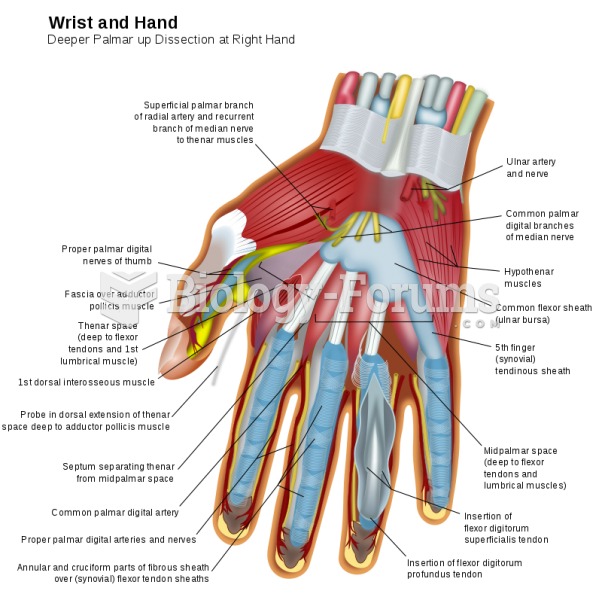|
|
|
In ancient Rome, many of the richer people in the population had lead-induced gout. The reason for this is unclear. Lead poisoning has also been linked to madness.
In Eastern Europe and Russia, interferon is administered intranasally in varied doses for the common cold and influenza. It is claimed that this treatment can lower the risk of infection by as much as 60–70%.
When taking monoamine oxidase inhibitors, people should avoid a variety of foods, which include alcoholic beverages, bean curd, broad (fava) bean pods, cheese, fish, ginseng, protein extracts, meat, sauerkraut, shrimp paste, soups, and yeast.
Egg cells are about the size of a grain of sand. They are formed inside of a female's ovaries before she is even born.
Asthma cases in Americans are about 75% higher today than they were in 1980.
 Horizontal stroking of the abdomen. Place a hand on either side of the waist, fingers pointing away ...
Horizontal stroking of the abdomen. Place a hand on either side of the waist, fingers pointing away ...
 Using the same hand position as in Step 3, apply circular friction along paraspinal muscles of the ...
Using the same hand position as in Step 3, apply circular friction along paraspinal muscles of the ...





